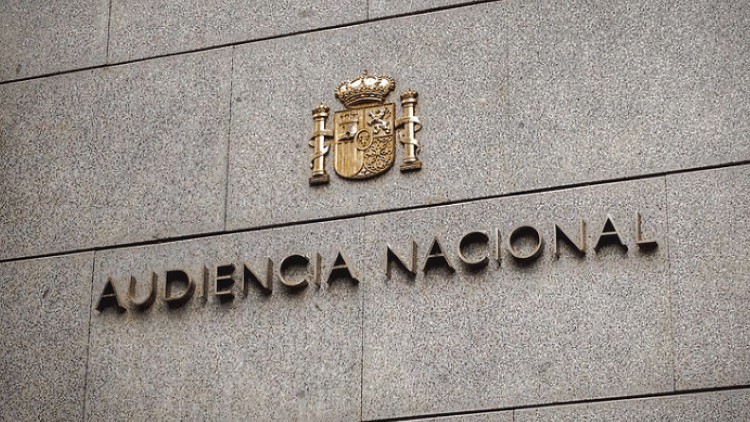The Diplomat
National Court Judge José Luis Calama has shelved the investigation into the use of the Pegasus computer program to spy on the President of the Government, Pedro Sánchez, and the Ministers of Defense, Interior and Agriculture, Margarita Robles, Fernando Grande-Marlaska and Luis Planas, respectively, due to Israel’s “absolute” lack of legal cooperation.
As reported yesterday by the high court in a press release, Calama has agreed the provisional dismissal of the case opened by the infection with the Pegasus software of the mobile devices of Pedro Sanchez, Margarita Robles, Fernando Grande-Marlaska and Luis Planas due to the “absolute” lack of legal cooperation from Israel, which “has not answered the rogatory commission sent by the Audiencia Nacional and has frustrated the continuation of the investigation”.
In the order of provisional dismissal, the head of the Central Court of Instruction Four reviews all the proceedings carried out throughout the case, which has been followed for a crime of discovery and disclosure of secrets that, he assures, has “jeopardized the very security of the State”.
According to the evidence gathered throughout the investigation, the resolution indicates, the infection of the cell phone of the President of the Government occurred on five occasions, between October 2020 and December 2021. The first of the processes that have been detected as harmful occurred between May 19 and 21, 2021 and the amount of information “exfiltrated” between both dates was at least 2.57 GB. The second was detected on May 31 and the information “exfiltrated” was 130 MB.
As for the Defense Minister’s cell phone, according to the court order, it shows signs of having been infected by Pegasus on four occasions, between May and October 2021, while the Interior Minister’s cell phone was infected twice, on June 2 and 7 of the same year. The cell phone of the Minister of Agriculture was infected on June 25, 2021, although the amount of information “exfiltrated” (less than 1 kb) suggests an unsuccessful infection attempt due to the existence of one of the “vaccine” applications.
The analysis carried out on these four devices with the tools and techniques available at the CCN/CNI, as stated by this body, according to the judge, does not allow to determine the authorship of any of these infections.
Commission rogatory
In order to determine the identity of the persons who would have committed the acts, explains the magistrate, a rogatory commission was addressed to Israel with a request for information to the company that owns Pegasus, NSO GROUP, and a request for a witness statement from its CEO. This is “a request for international legal cooperation that has had to be extended on one occasion and twice recalled for compliance,” the press release explains.
“Unfortunately, at this procedural moment, more than a year having passed since the issuance of the aforementioned rogatory commission, no response has been received, despite having been the subject of extension once, and compliance reiterated on another couple of occasions,” warns the judge. “This silence clearly evidences an absolute lack of legal cooperation on the part of the Government of Israel“, which “allows us to presume that the letter rogatory in question, sent four times, will never be fulfilled”, he adds.
Calama understands that, while the terms of Article 2 of the European Convention on Mutual Assistance in Criminal Matters “provide considerable enforcement discretion to the State to which a request for legal cooperation is made,” the exercise of this discretion is subject to “the expressed obligation of good faith codified in Article 26 of the 1969 Vienna Convention.” This, in his opinion, “should oblige the State of Israel to externalize the reasons for the refusal to execute the letter rogatory, as well as to justify that they fall within those permitted by the aforementioned conventional stipulation”.
“Diplomatic channels”
“At this point, this jurisdictional body can do little or nothing for the fulfillment of the rogatory commission of reference and, therefore, for the present investigation to move forward,” the magistrate continues. “There only remains an eventual diplomatic channel that is capable of promoting compliance with the obligations derived from international treaties, and whose exercise corresponds to the Government, in this case, moreover, a victim of the crime under investigation”, warns Judge Calama.
“Undoubtedly, the State Attorney’s Office, represented in the present proceedings, as procedural representative of the General Administration of the State, will promote the exercise of said channel through the mechanisms that the Government of Spain has for such purposes”, he points out.
For Calama, the described procedural situation places the procedure in what the Supreme Court describes as “investigative impotence”, which prevents knowing the reality of what happened, and that, in this case, entails that “the process remains dormant or in latency, until the information obtained through a punctual and unlikely fulfillment of the rogatory commission that Israel has obstructed or new sources of evidence, allow the continuation of the procedure”.
“The very security of the State is in jeopardy”
The instructor considers that the investigated facts can be framed in “the crimes of discovery and revelation of secrets that safeguard space of personal and family intimacy that is subtracted from extraneous intrusions”, crimes that for the magistrate “have put in check the very security of the State”.
“However, the frustration of the investigation derived from the non-compliance of the rogatory commissions addressed to the Israeli authorities prevents the investigation on the attribution of the authorship to any specific person, leading us, unfailingly, to agree the provisional dismissal of the proceedings for lack of known perpetrator or perpetrators, as provided for in the aforementioned art. 641.2 “of the Criminal Procedure Act,” he concludes.







